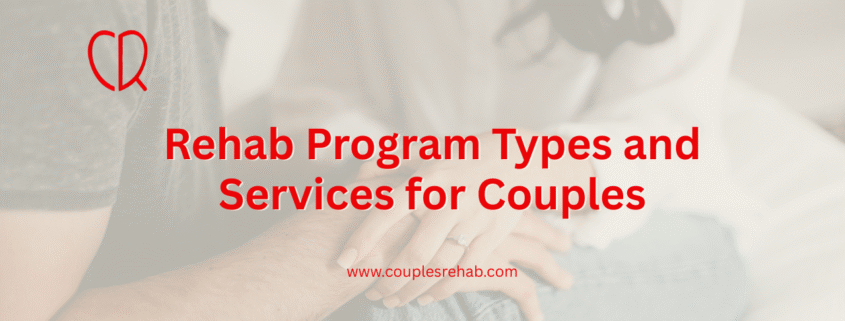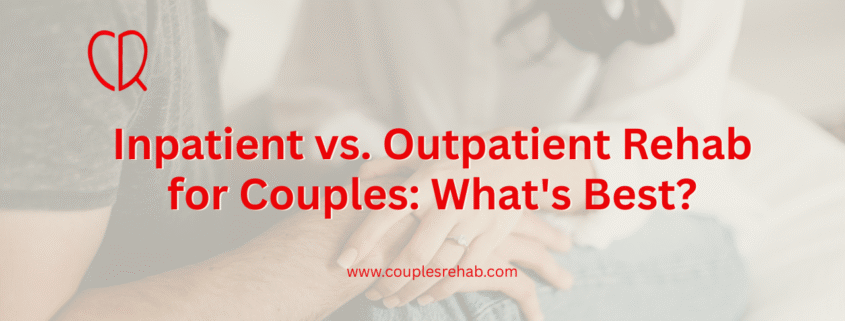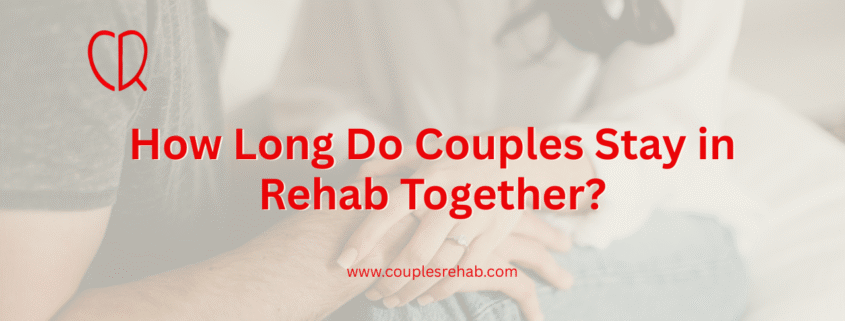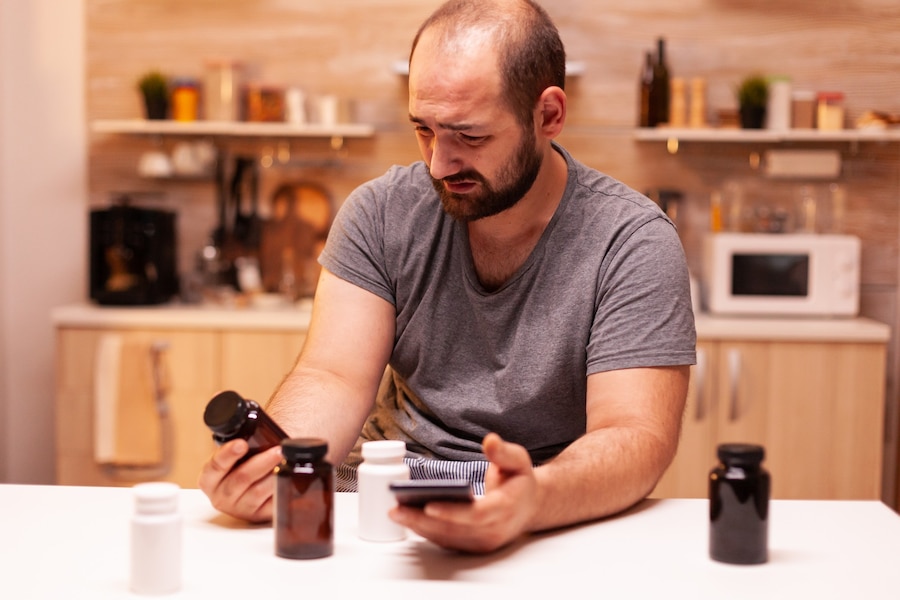When addiction affects both partners in a relationship, the path to recovery becomes uniquely complex. Research shows that approximately 40% of couples seeking addiction treatment have both partners struggling with substance abuse disorders. This staggering statistic reveals a critical need for specialized treatment approaches that address not only individual addiction but also the relationship dynamics that may contribute to or complicate recovery. Traditional addiction treatment often separates couples during their most vulnerable time, potentially undermining the very support system that could strengthen their recovery journey. However, inpatient rehab for couples offers a revolutionary approach that recognizes the powerful role relationships play in both addiction and healing.
Understanding Inpatient Rehab for Couples
Inpatient rehab for couples represents a specialized form of residential addiction treatment where both partners receive comprehensive care while remaining together throughout their recovery process. Unlike conventional treatment programs that isolate individuals from their primary relationships, couples-focused inpatient care acknowledges that addiction rarely occurs in isolation—it affects entire family systems and relationship dynamics.
These programs typically last between 30 to 90 days, providing intensive, round-the-clock medical supervision and therapeutic intervention. During this time, couples live in a structured, substance-free environment while participating in both individual and joint therapy sessions. The approach recognizes that while each person must address their unique addiction challenges, the relationship itself requires healing and restructuring to support long-term recovery.
The foundation of couples inpatient treatment rests on several key principles. First, addiction often involves codependent behaviors and enabling patterns that both partners must recognize and change. Second, recovery requires rebuilding trust, communication skills, and healthy boundaries within the relationship. Finally, couples who recover together often demonstrate stronger long-term sobriety rates when they’ve learned to support each other’s ongoing recovery efforts.
Most reputable inpatient rehab centers for couples employ licensed addiction counselors, medical doctors specializing in addiction medicine, and family therapists who understand the complexities of treating substance abuse within relationship contexts.
Benefits of Couples Therapy in Residential Addiction Treatment
The benefits of couples therapy in residential addiction treatment extend far beyond simple convenience or emotional comfort. Clinical research demonstrates that couples who participate in joint treatment programs show significantly improved outcomes compared to those who undergo separate treatment experiences.
One primary advantage involves the elimination of treatment-related separation anxiety. When partners enter individual rehab programs, they often experience additional stress from being apart during an already challenging time. This separation can actually hinder recovery by creating new emotional trauma or triggering abandonment fears that may have contributed to addictive behaviors initially.
Couples therapy within inpatient settings also allows for real-time identification and modification of relationship patterns that support addiction. For instance, therapists can observe how couples communicate about stress, conflict, or triggers, then immediately provide coaching and alternative strategies. This immediate feedback loop accelerates learning and behavior change in ways that aren’t possible when treating individuals separately.
Another significant benefit involves shared accountability and motivation. When both partners are committed to recovery simultaneously, they can provide mutual encouragement during difficult moments while holding each other accountable for treatment participation and sobriety goals. This shared commitment often proves more powerful than external accountability from treatment staff alone.
The therapeutic process itself becomes more comprehensive when couples participate together. Issues like trust rebuilding, communication improvement, and relapse prevention planning can incorporate both partners’ perspectives and needs from the beginning, rather than attempting to integrate separate treatment experiences later.
How to Choose an Inpatient Rehab Center for Couples
Selecting the right inpatient rehab center for couples requires careful evaluation of multiple factors that will significantly impact treatment success. The process begins with identifying facilities that specifically offer couples programming, as not all addiction treatment centers provide this specialized service.
Accreditation represents the first critical consideration. Look for facilities accredited by respected organizations like The Joint Commission or the Commission on Accreditation of Rehabilitation Facilities (CARF). These accreditations ensure that treatment programs meet rigorous standards for safety, effectiveness, and ethical practices.
When evaluating how to choose an inpatient rehab center for couples with dual diagnosis needs, additional expertise requirements come into play. Dual diagnosis refers to the simultaneous presence of addiction and mental health disorders, which affects approximately 60% of individuals seeking addiction treatment. Couples programs must have psychiatrists and mental health professionals specifically trained in treating co-occurring disorders.
The therapeutic approach used by different facilities varies significantly. Evidence-based treatments like Cognitive Behavioral Therapy (CBT), Dialectical Behavior Therapy (DBT), and Emotionally Focused Therapy (EFT) have demonstrated particular effectiveness in couples addiction treatment. Facilities should clearly explain their treatment modalities and provide evidence supporting their chosen approaches.
Staff qualifications deserve thorough investigation. Effective couples addiction treatment requires therapists with specialized training in both addiction counseling and couples/family therapy. Ask about staff credentials, continuing education requirements, and experience levels with couples-specific programming.
What to Expect During Couples Inpatient Rehab for Substance Abuse
Understanding what to expect during couples inpatient rehab for substance abuse helps reduce anxiety and allows couples to prepare mentally for the treatment process. The typical program begins with comprehensive medical and psychological assessments for both partners, conducted separately and together to understand individual and relationship dynamics.
The first few days usually involve medical detoxification if needed, with 24-hour medical supervision to ensure safety and comfort during withdrawal. While detox experiences vary depending on substances used and length of addiction, medical staff provide medications and support to minimize discomfort and health risks.
Daily schedules in couples inpatient programs typically include both individual and joint therapeutic activities. Mornings might begin with medical check-ins, followed by individual therapy sessions where each partner works on personal recovery goals. Afternoons often feature couples therapy sessions, group therapy with other couples, and educational workshops covering topics like addiction science, communication skills, and relapse prevention.
The therapeutic process itself involves several distinct phases. Initial weeks focus on stabilization, safety planning, and beginning to identify relationship patterns that contributed to addiction. Middle phases emphasize skill building, trust rebuilding, and developing healthy coping mechanisms both individually and as a couple. Final weeks concentrate on discharge planning, aftercare arrangements, and preparing for the transition back to daily life.
Cost Considerations for Inpatient Drug Rehab for Married Couples
The cost of inpatient drug rehab for married couples varies significantly based on multiple factors, but understanding typical ranges and payment options helps families plan for this crucial investment in their future together. Private pay costs for couples inpatient programs typically range from $30,000 to $100,000 for a 30-day program, with luxury facilities potentially exceeding these amounts.
Several factors influence pricing structures. Geographic location plays a major role, with facilities in areas like Southern California often commanding higher fees due to real estate costs and market demand. Treatment duration significantly impacts total costs, as longer programs naturally require greater investment but often provide better long-term outcomes.
Insurance coverage for couples addiction treatment has improved significantly in recent years, thanks to mental health parity laws requiring insurance companies to provide addiction treatment benefits comparable to other medical conditions. Many major insurance providers now cover inpatient addiction treatment, though specific benefits for couples programming may require pre-authorization or meet certain criteria.
When investigating insurance coverage, important questions include: Does the policy cover residential addiction treatment? Are there specific requirements for couples programming? What are the deductible and co-payment responsibilities? How many treatment days are covered annually?
Alternative financing options exist for families without adequate insurance coverage. Many treatment centers offer payment plans, sliding scale fees based on income, or scholarship programs for qualifying individuals. Some facilities also work with medical financing companies that provide loans specifically for healthcare expenses.
Success Rates and Long-term Outcomes
Success rates of couples residential treatment for addiction demonstrate the effectiveness of this specialized approach, with research indicating that couples who complete treatment together show 60-70% sobriety rates one year post-treatment, compared to 40-50% for individuals who complete separate programs.
These improved outcomes result from several factors unique to couples treatment. Shared accountability provides ongoing motivation and support that continues after formal treatment ends. Couples who recover together develop mutual coping strategies and can recognize each other’s warning signs for potential relapse, enabling early intervention when needed.
Communication improvements achieved during couples treatment also contribute to long-term success. Addiction often damages couples’ ability to discuss problems, express needs, and resolve conflicts constructively. Treatment that specifically addresses these communication patterns provides tools that strengthen the relationship and reduce stress that might otherwise trigger relapse.
However, success rates vary based on several important factors. Couples where both partners demonstrate genuine commitment to recovery show significantly better outcomes than situations where one partner is ambivalent about change. Length of treatment also correlates with improved outcomes, with couples completing 60 or 90-day programs typically showing better long-term success than those who leave after 30 days.
Insurance Coverage for Couples Addiction Treatment
Understanding inpatient alcohol rehab for couples near me with insurance coverage requires navigating complex insurance policies and treatment center billing practices. The Mental Health Parity and Addiction Equity Act requires insurance companies to provide addiction treatment benefits comparable to other medical conditions, significantly improving access to quality treatment.
Most major insurance providers, including Aetna, Blue Cross Blue Shield, Cigna, and UnitedHealthcare, now provide coverage for inpatient addiction treatment. However, specific benefits for couples programming may have additional requirements or limitations that require careful investigation before selecting a treatment facility.
Pre-authorization represents a common requirement for inpatient addiction treatment. Insurance companies typically require documentation of medical necessity, including assessment results, treatment history, and physician recommendations. For couples programs, additional documentation might be needed to justify the necessity of joint treatment rather than separate programs.
In-network versus out-of-network benefits significantly impact out-of-pocket costs. In-network facilities have contracted rates with insurance companies, resulting in lower patient responsibility. Out-of-network facilities may provide more specialized couples programming but typically result in higher patient costs.
Couples IOP vs. Inpatient Rehab: Making the Right Choice
The decision between couples intensive outpatient program (IOP) vs. inpatient rehab depends on multiple factors including addiction severity, medical needs, family responsibilities, and financial considerations. Understanding the differences helps couples make informed decisions about the most appropriate level of care.
Inpatient rehab provides 24-hour medical supervision and removes couples from their normal environment, eliminating access to substances and triggers that might interfere with early recovery. This level of care is typically recommended for couples with severe addiction, medical complications from substance use, or previous unsuccessful attempts at outpatient treatment.
Intensive outpatient programs allow couples to maintain work and family responsibilities while receiving comprehensive treatment several hours per day, multiple days per week. IOP may be appropriate for couples with less severe addiction, strong family support systems, and stable living environments free from substances and triggers.
The therapeutic intensity differs significantly between these options. Inpatient programs provide constant therapeutic support and intervention, with immediate assistance available during challenging moments. IOP requires couples to apply recovery skills in real-world situations between treatment sessions, which can be beneficial but also more challenging during early recovery.
Finding Quality Treatment in Southern California
Southern California offers numerous options for couples seeking inpatient addiction treatment, with facilities ranging from basic medical programs to private luxury inpatient rehab for couples therapy that provide comprehensive addiction services in beautiful, healing environments. The region’s year-round pleasant climate and natural beauty contribute to therapeutic environments that support recovery and relationship healing.
Huntington Beach, in particular, has become a recognized center for innovative addiction treatment approaches. The coastal location provides a serene backdrop for intensive therapeutic work, while proximity to major metropolitan areas ensures access to specialized medical professionals and comprehensive support services.
When evaluating facilities in Southern California, consider factors like proximity to family and support systems, specific treatment approaches offered, staff qualifications, and facility accreditation. The state’s strict licensing requirements ensure basic safety and quality standards, but additional accreditations from national organizations indicate commitment to excellence.
Frequently Asked Questions
How do you qualify for inpatient rehab?
Qualification for inpatient rehab typically requires meeting medical necessity criteria established by clinical assessment and insurance requirements. Most facilities require individuals to demonstrate addiction severity that necessitates 24-hour medical supervision, which might include factors like withdrawal risk, medical complications, mental health concerns, or previous treatment failures. A comprehensive assessment by addiction professionals evaluates physical health, psychological status, addiction severity, and social circumstances to determine appropriate treatment levels.
Can you go to rehab as a couple?
Yes, many specialized treatment facilities offer couples programming that allows partners to receive addiction treatment together while maintaining their relationship throughout the recovery process. These programs recognize that addiction affects entire family systems and that couples often achieve better outcomes when they recover together rather than separately. Couples rehab programs typically include both individual and joint therapy sessions, allowing each person to address personal recovery goals while also working on relationship dynamics.
Are relationships allowed in rehab?
Relationship policies vary significantly between treatment facilities and depend on the specific type of program. Traditional individual rehab programs often discourage or prohibit romantic relationships during treatment to maintain focus on personal recovery. However, couples-specific rehab programs are specifically designed to accommodate existing relationships while providing appropriate therapeutic support for both individual and relationship healing.
Can boyfriend and girlfriend go to rehab together?
Boyfriends and girlfriends can attend rehab together at facilities that offer couples programming, regardless of marital status. Many couples rehab programs welcome unmarried partners who demonstrate commitment to their relationship and mutual recovery goals. The focus is on the stability and significance of the relationship rather than legal marital status. However, some facilities may have specific requirements about relationship duration or cohabitation history.
Do relationships survive rehab?
Relationships can not only survive rehab but often emerge stronger when couples receive appropriate treatment together. Research indicates that couples who complete treatment jointly show higher success rates and improved relationship satisfaction compared to those who recover separately. However, survival depends on multiple factors including both partners’ commitment to recovery, willingness to address relationship issues that contributed to addiction, and continued participation in aftercare and ongoing therapy.
Take the First Step Toward Recovery Together
If you and your partner are struggling with addiction, you don’t have to face this challenge alone or apart. Couples Rehab in Huntington Beach, California, specializes in providing comprehensive inpatient mental health residential treatment for couples designed specifically for partners who want to recover together while strengthening their relationship.
Our experienced team understands the unique complexities of addiction within relationships and provides evidence-based treatment that addresses both individual recovery needs and relationship dynamics. With beautiful facilities just steps from the ocean, we offer the therapeutic environment and professional expertise necessary for successful long-term recovery.
Don’t let addiction continue to damage your relationship and your future together. Contact Couples Rehab today for a confidential consultation to discuss your treatment options and verify your insurance coverage. Our compassionate admissions team is available 24/7 to answer your questions and help you take the first step toward recovery and relationship healing.
Call now to speak with an addiction specialist who understands couples treatment, or visit our website to learn more about our specialized programs. Your recovery journey can begin today, and you can take it together.











